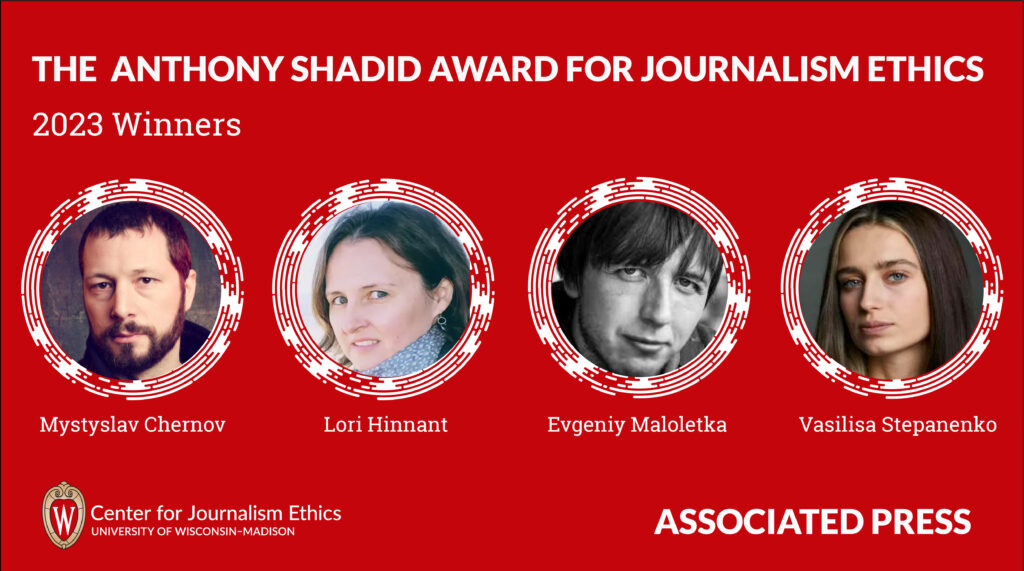
How do we write about the seizure of 1000s of children without endangering them or the families trying to get them home to Ukraine? How do we report about the erasure of a city without giving the occupiers a way to track down the people still inside?
Lori Hinnant (Associated Press)
Covering a Humanitarian Crisis
For almost three weeks, Associated Press journalists Mystyslav Chernov, Evgeniy Maloletka and Vasilisa Stepanenko were the last international journalists on the ground documenting the atrocities committed as Russian forces closed in on the Ukrainian city of Mariupol in March 2022.
During their reporting, the team had to weigh their ethical duties as reporters and human beings. This meant not just protecting sources, but also helping victims of the war (and accepting their help in return to both avoid capture and get the story out).
With a combination of personal narrative and reporting, the AP team brought the shocking new realities of the war in Ukraine to an international audience and put pressure on Russia to open humanitarian corridors. Their incredible efforts invite reflection on the journalist’s role and responsibilities in covering war and humanitarian crises.
Lori Hinnant and Mystyslav Chernov on Their Reporting
Questions
Q1: In which contexts might it be appropriate to intervene in a story you’re covering?
Q2: What role does personal narrative play in journalistic storytelling? Does Chernov’s first-person account of the experience make this journalism less “objective”?
Q3: How far should journalists go to maintain relationships with sources?
